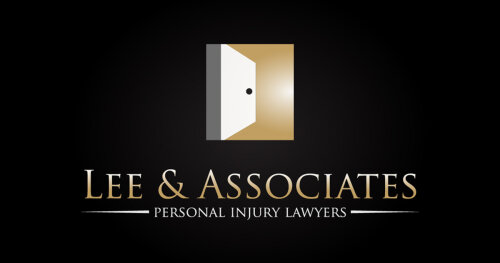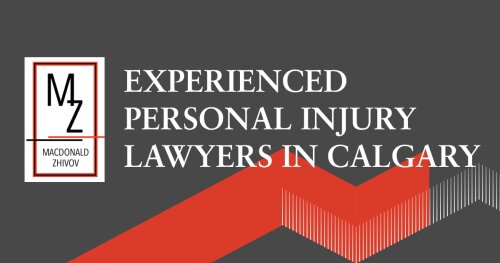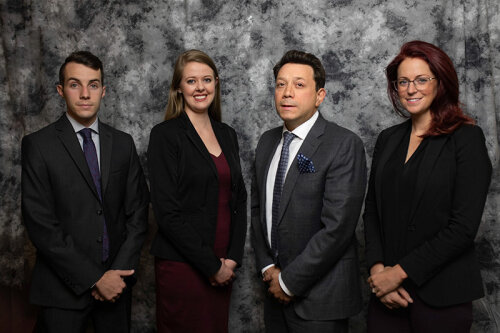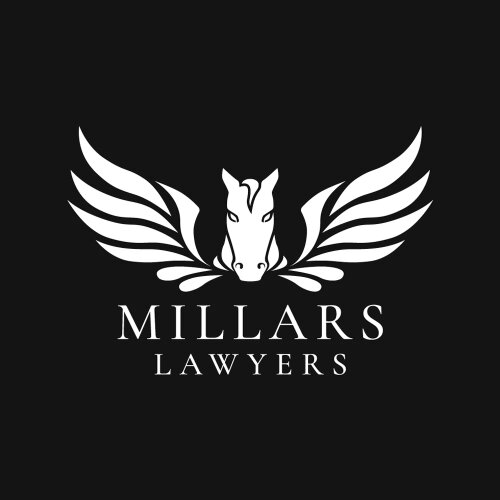Best Wrongful Death Lawyers in Canada
Share your needs with us, get contacted by law firms.
Free. Takes 2 min.
Or refine your search by selecting a city:
List of the best lawyers in Canada
About Wrongful Death Law in Canada
Wrongful death occurs when an individual dies due to the negligence or misconduct of another party. In Canada, wrongful death claims are typically filed by family members or dependents of the deceased, seeking compensation for their loss. These claims aim to provide financial and emotional relief to those impacted by the untimely death of a loved one. Canadian wrongful death laws vary by province and territory, though they generally follow similar principles of liability and compensation.
Why You May Need a Lawyer
Engaging a wrongful death lawyer is crucial in navigating the complexities of the legal system and ensuring that the rights of the deceased and their family are protected. Common situations where you might need legal help include:
- The death was caused by a car accident involving negligence.
- There was a medical malpractice incident leading to the person's death.
- The deceased suffered a fatal injury in the workplace.
- A defective product resulted in the fatal accident.
- The death occurred due to neglect or abuse in a nursing home or similar facility.
Local Laws Overview
While wrongful death laws can differ across provinces, there are key aspects common to many jurisdictions in Canada:
- Limitation Period: There is usually a specific timeframe within which a wrongful death claim must be filed, often within two years from the date of death.
- Types of Damages: Families may claim for loss of financial support, funeral expenses, loss of care and companionship, and other related costs.
- Liability Establishment: It must be proven that the defendant’s actions were negligent and directly responsible for the death.
Frequently Asked Questions
What qualifies as a wrongful death claim?
A wrongful death claim arises when a person’s death is caused by the wrongful conduct of another, such as negligence or intentional harm.
Who can file a wrongful death lawsuit?
Typically, immediate family members such as spouses, children, and sometimes parents, are eligible to file a wrongful death claim.
What types of compensation can be claimed?
Compensation may include funeral and burial expenses, loss of financial support, loss of companionship, and punitive damages in some cases.
How long do I have to file a wrongful death lawsuit?
The limitation period for filing a wrongful death claim is usually two years from the date of the deceased’s death, but it can vary by province.
Can criminal charges be involved with a wrongful death case?
A wrongful death lawsuit is civil in nature, but it can coincide with a criminal case if the death occurred due to intentional acts.
Is it necessary to prove negligence in a wrongful death case?
Yes, it is typically necessary to prove that the defendant's negligence or misconduct directly caused the death.
Can settlements be reached outside of court?
Many wrongful death claims are settled without going to trial, through negotiation or mediation between the involved parties.
How is compensation determined in a wrongful death case?
Compensation is calculated based on factors such as the deceased’s age, earning capacity, and the financial and emotional dependency of the claimants.
What is the role of an executor in wrongful death claims?
An executor of the deceased’s estate may act on behalf of the estate in pursuing claims for losses suffered by the estate itself.
Will hiring a lawyer guarantee compensation?
While hiring a lawyer can significantly improve the chances of a successful outcome, they cannot guarantee compensation. The resolution depends on the facts and evidence presented in the case.
Additional Resources
For further guidance on wrongful death claims in Canada, the following resources might be helpful:
- Provincial Bar Associations
- Canadian Association for Legal Help
- Government of Canada Justice Department
Next Steps
If you need legal assistance in a wrongful death case, consider the following steps:
- Gather all relevant documentation related to the incident, including medical reports, police records, and any evidence of negligence.
- Contact a reputable wrongful death lawyer with experience in your local jurisdiction.
- Schedule a consultation to discuss your case details and explore potential legal strategies.
- Consider speaking with multiple law firms to ensure you find the best representation for your needs.
- Ensure you are aware of the limitation period and act promptly to avoid missing critical deadlines.
Lawzana helps you find the best lawyers and law firms in Canada through a curated and pre-screened list of qualified legal professionals. Our platform offers rankings and detailed profiles of attorneys and law firms, allowing you to compare based on practice areas, including Wrongful Death, experience, and client feedback.
Each profile includes a description of the firm's areas of practice, client reviews, team members and partners, year of establishment, spoken languages, office locations, contact information, social media presence, and any published articles or resources. Most firms on our platform speak English and are experienced in both local and international legal matters.
Get a quote from top-rated law firms in Canada — quickly, securely, and without unnecessary hassle.
Disclaimer:
The information provided on this page is for general informational purposes only and does not constitute legal advice. While we strive to ensure the accuracy and relevance of the content, legal information may change over time, and interpretations of the law can vary. You should always consult with a qualified legal professional for advice specific to your situation.
We disclaim all liability for actions taken or not taken based on the content of this page. If you believe any information is incorrect or outdated, please contact us, and we will review and update it where appropriate.
Browse wrongful death law firms by city in Canada
Refine your search by selecting a city.
















